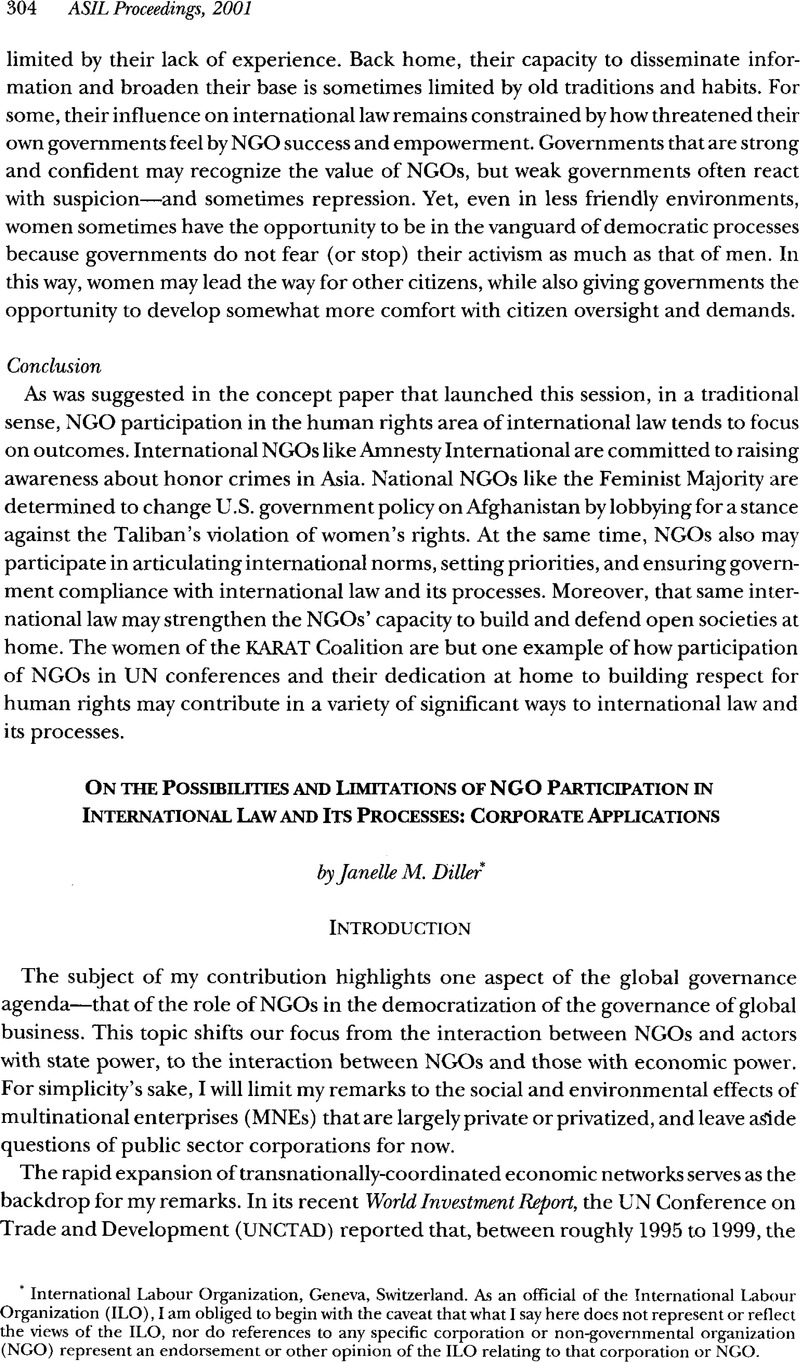No CrossRef data available.
Published online by Cambridge University Press: 28 February 2017

1 United Nations Conference on Trade and Development, World Investment Report 2000: Cross-Border Mergers and Acquisitions and Development 11-13 (2000), available at <http://www.unctad.org/wir/>.
2 In England and Wales, cases have involved claims against England-based companies in mining and chemicals sectors operating in South Africa and Namibia by workers there for occupational diseases and personal injuries. In Australia, cases have sought Australian parent responsibility for pollution resulting from mining operations in Papua New Guinea, and asbestosis suffered by a worker in a New Zealand subsidiary. For details, see Halina Ward, Governing Multinationals: The Role of Fomgn Direct Liability, RIIA Briefing Paper (Royal Inst. of Int’l Aff., Energy and Env’t Programme, London, England), February 2001, available at <http://www.wtowatch.org/library/>.
3 Human Rights Watch, Americas Watch, the Women’s Rights Project, the International Human and Labor Rights Fund, and the National Association of Democratic Lawyers in Mexico joined efforts. Among results was a Mexican government reinterpretation of civil rights protection to hold that its labor law covered pre-recruitment testing.